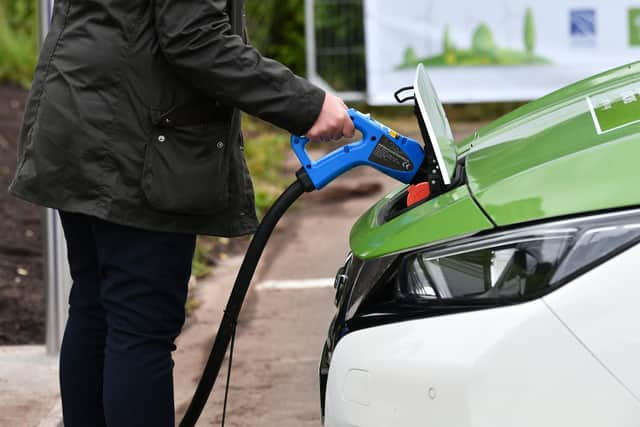Falkirk Council: The cost of using Falkirk Council EV charging stations likely to rise
and live on Freeview channel 276
Proposals going before members of the executive next week include ew charges for fast, rapid and ultra-rapid charging points; an increase in minimum spend; and an increase for those who ovestay at charges.
The council currently charges 25p per kWh but the recommendation from officials is this should rise to 48p per kWh for fast charging, 69p per kWh for rapid charging; and 75p for ultra-rapid charging.
Advertisement
Hide AdAdvertisement
Hide AdThe minimum spend would also rise to £5 from its current £1 fee.


Overstay charges would be £12 for first four hours at fast charging points, then £12 for every subsequent four hours; £20 for first 60 minutes at rapid chargers then £20 for every subsequent hour; and £30 for the first 40 minutes then £30 for every subsequent 40 minutes at ultra-fast chargers. The current overstay charge is £5.
The current tariffs were set in April 2021 when the per kWh cost of electricity was under 10p. Across Scotland local authority charges currently range form 15p to 40p but this is likely to rise in the near future.
Falkirk Council has been responsible for installing and operating public Electric Vehicle Charging Points (EVCP) since 2014, with the first chargers installed and operational in 2015. It expects to have 90 charging points in place at 38 locations in the area by February 2024.
Advertisement
Hide AdAdvertisement
Hide AdThe report to committee will highlight that existing tariffs are no longer covering the cost to Falkirk Council and up until the end of 2022, the council spent £71,000 on electricity but only received an income of £38,000. This equates to 54 per cent of costs being covered following the significant increases in electricity charges globally.
A council spokesperson said: “If approved, income generated from the increases would allow the service to expand and would be a cost-neutral proposal – not for profit – and encourage more provision of charging points.”